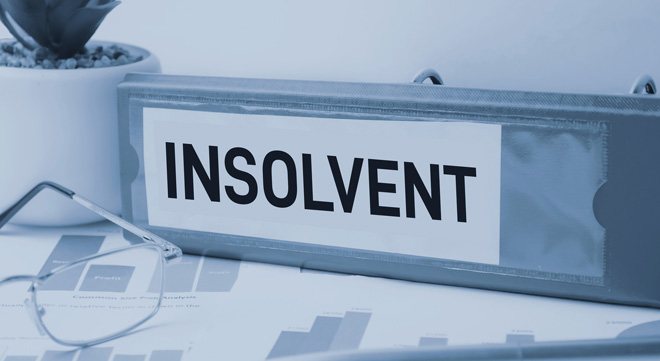The joint trustees of the BHI Trust insolvent estate will need to recover well over R1.5 billion if they are to meet creditors’ proven claims and cover the costs of their recovery efforts.
Craig Warriner, fund manager and trustee of BHI Trust, surrendered to authorities last October, admitting to misusing the trust’s funds. The High Court in Johannesburg provisionally sequestrated the trust on 25 October last year. Shortly thereafter, Gert de Wet and Sumaya Mohamed from Kaap-Vaal Trust were appointed as joint provisional trustees. BHI Trust was formally sequestered on 7 February this year, and the Master of the High Court confirmed De Wet and Mohamed as final trustees on 15 April.
Warriner was sentenced to 25 years in prison for fraud following a plea deal in the Palm Ridge Commercial Crimes Court on 27 May. The evidence presented in court showed that Warriner’s scheme affected 206 investors, leading to substantial financial losses.
In a fifth circular distributed to creditors last week, the joint trustees shared that 812 claims totalling R1 512 857 185.24 were proved against the BHI Trust insolvent estate during the second creditors’ meeting held on 12 June at the Randburg Magistrate’s Court.
‘Danger of contribution’
Proof of claims was initially withdrawn at the first creditors’ meeting held on 3 April after creditors’ representatives were informed that contributions might be required.
In a fourth circular dated 11 April, the trustees advised creditors they believed “that a contribution will currently be levied against creditors until such time that sufficient recoveries are made for the benefit of creditors” and to reduce administration costs.
Read: BHI Trust creditors face a dilemma: double down or stand down
Contributions are required when an estate has insufficient funds to cover the normal estate expenses, such as bond premiums, legal costs, Master’s fees, and any other costs incurred in the administration of the insolvent estate. If the estate lacks sufficient free residue to cover these costs, contributions can be levied in various liquidation and distribution accounts.
According to the joint trustees, these contributions are calculated proportionally among all creditors who have proven claims against the estate and become payable upon the confirmation of liquidation and distribution accounts.
The risk of having to contribute, as outlined in section 106 of the Insolvency Act, has discouraged many creditors from seeking compensation for losses. In a worst-case scenario, if a trust’s asset recovery falls short, creditors could face significant financial losses, receiving only a fraction of what they’re owed or nothing at all. Lengthy legal proceedings could further increase costs and uncertainty.
On the other hand, if the trust’s assets are efficiently recouped at their highest value, there might be enough funds to repay all the creditors in full. Any surplus could be used to cover outstanding costs.
The cut-off date for advising not to prove a claim against the BHI Trust insolvent estate was affixed by creditors’ proxy or proxies as being 3 May.
As of 7 May, 115 creditors had given instruction not to prove their claims.
According to the joint trustees, creditors can at any time during the administration of the estate withdraw their claim “but must remember that it would still be liable for part contribution calculated for what period the claim was submitted”.
For example, if a creditor proves a claim and after three months decides to withdraw the claim, the creditor will be partially responsible for a contribution if it so needs to be.
“Creditors can prove a claim against the estate any time before the confirmation of the Final Liquidation and distribution account. However, a creditor will be excluded from any distributions if their claim is not proven before the submitting of an account to the Master of the High Court subject to the satisfaction of the Master of the High Court,” the joint trustees clarified.
Trustees to demand repayment from preferred creditors
In the third circular to creditors dated 17 January, the joint trustees announced they would soon send letters of demand to creditors who received payments from 25 April 2023 onwards. The circular stated: “The initial indication is that the amount that these creditors got a preference over other creditors is exceeding R300 million.”
The joint trustees have confirmed that their attorneys are in the process of sending letters of demand to creditors that had a preference over other creditors by receiving funds six months prior to the sequestration date, per section 29 of the Insolvency Act.
“The law makes provision that creditors that benefited from an unfair preference six months prior to the sequestration date have to pay back the advantage they received. It means that certain creditors received funds and received an unfair advantage over others that did not receive funds,” the joint trustees explained.
Moonstone asked the joint trustees about the obligations of investors who received interest in a Ponzi scheme once it is deemed illegal – would investors be required to return only the interest earned on their original investment to the insolvent estate or more than that?
“The trustees at this juncture are over-cautious to advise on this aspect, as there are recent order/s in potentially the same type of illegal scheme/s that need to be studied by the trustees and their advisers in conjunction with sections 26 to 31 of the Insolvency Act (where applicable) in order to endeavour to ascertain what repayments will be applicable,” the joint trustees said.
The second creditors’ meeting has been postponed for enquiry purposes to 23 October.
Creditors who want to enquire about their claim/s can contact the BHI claims department on 087 803 5038.
Legal documents about the BHI Trust liquidation process and the circulars sent to creditors can be accessed here.





I was scammed too